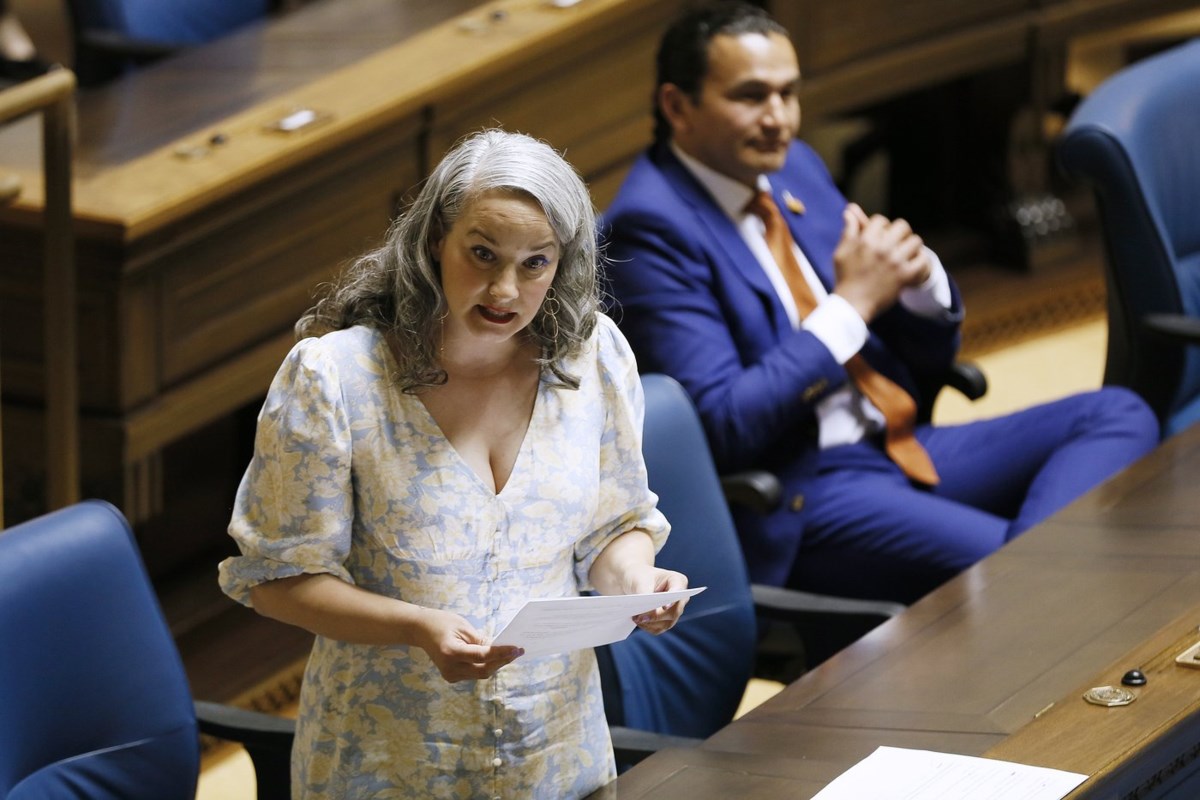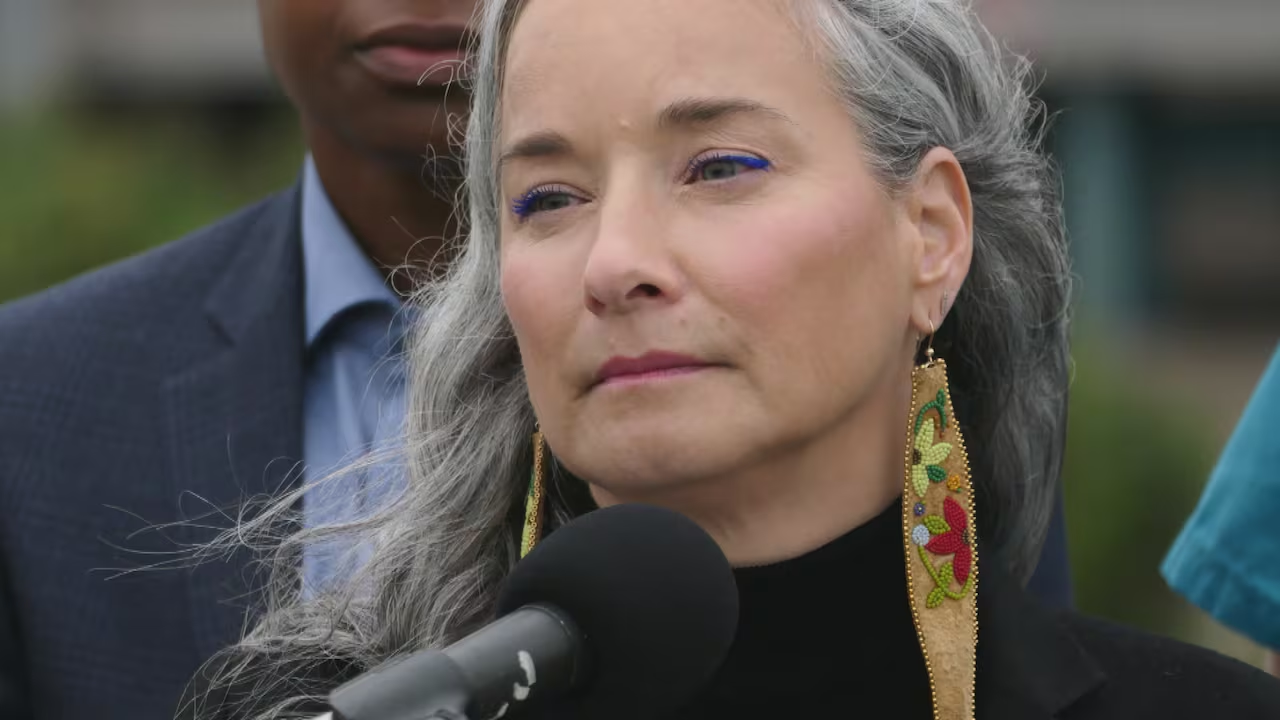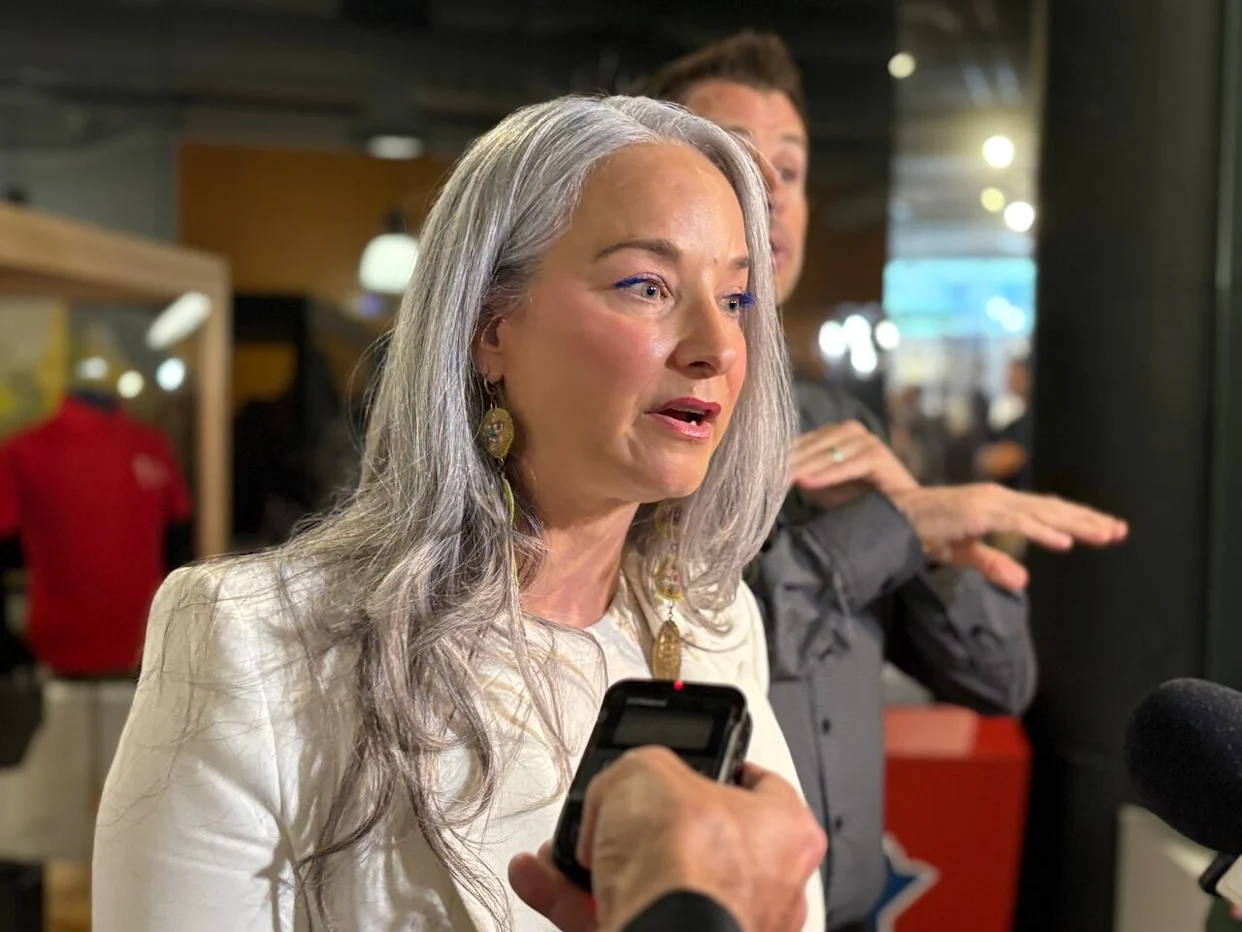A Manitoba cabinet minister apologizes – and those aren’t words you hear every day in Canadian politics. But when Families Minister Nahanni Fontaine found herself at the centre of a social media storm this week, saying sorry became her only option.
The controversy erupted after Fontaine shared a post about the recent death of American conservative activist Charlie Kirk, and what happened next has become a perfect example of how quickly things can go sideways in today’s political world.
The Post That Started It All
Here’s what happened: on Thursday night, Manitoba cabinet minister apologizes became trending after Fontaine shared someone else’s Instagram post about Charlie Kirk, who was shot and killed at Utah Valley University earlier this week. The post she shared wasn’t exactly diplomatic.
The original post, written by a US-based Indigenous activist, described Kirk as “racist, xenophobic, transphobic, Islamophobic” and called him a “white nationalist mouthpiece.” It went on to say the author had no empathy for Kirk – except for his children, who reportedly witnessed the shooting.
“The man stood for nothing but hate,” the post read.
Not exactly the kind of measured response you’d expect from a government minister, which is probably why the Manitoba cabinet minister apologizes situation developed so quickly.
The Backlash Hits Fast

Within hours, screenshots of Fontaine’s share were circulating across social media platforms, and the criticism came from all directions. The Opposition Progressive Conservatives didn’t hold back, with Tory Leader Obby Khan calling her post “atrocious, it’s despicable, it’s disgusting.”
The PCs demanded that Fontaine be removed from cabinet – and possibly kicked out of the NDP caucus entirely. When a Manitoba cabinet minister apologizes under this kind of pressure, you know the situation has gotten serious.
Premier Wab Kinew found himself having to manage the crisis just days after he’d taken a much more diplomatic approach to Kirk’s death. The contrast between the premier’s statesman-like response and his minister’s social media choice couldn’t have been starker.
The Premier Steps In
By Friday, it was clear that damage control was needed. Kinew told reporters he spoke with Fontaine and asked her to apologize – which explains why we’re now talking about how the Manitoba cabinet minister apologizes for her actions.
But here’s the interesting part: despite all the calls for her removal, Kinew said Fontaine would stay in cabinet.
“I don’t believe in cancel culture,” Kinew told reporters. “It would be too easy to show her the door. It is a much harder task to say we’re going to work through this together and I am going to try to help you understand why we need to bring people together and not divide people at this time.”
The Apology Itself
When the Manitoba cabinet minister apologizes, you’d expect a pretty carefully worded statement – and that’s exactly what we got. Fontaine’s written apology was brief but hit all the expected notes.
“I apologize for sharing a post yesterday on the murder of Charlie Kirk. Violence has no place in our democracy. Political debate is achieved with words and discussion,” her statement read. “In a world too often divided, we should strive to show empathy to everyone even those we don’t agree with.”
The apology came through her press secretary rather than a personal appearance, which tells you something about how the situation was being managed.
This Isn’t Her First Controversy
Here’s what makes this Manitoba cabinet minister apologizes situation even more complicated – this isn’t Fontaine’s first time in trouble recently. Just two months ago, she had to apologize for different comments.
In July, Fontaine was caught on a hot mic at a public event, swearing about having to share the stage with a sign-language interpreter. She complained that the interpreter was distracting and shouldn’t have been on stage because they blocked her view of the audience.
She apologized for that incident too, but now political experts are starting to see a pattern.
The Expert Take

Christopher Adams, an adjunct professor of political science at the University of Manitoba, didn’t mince words about the situation. He said Fontaine is “walking on thin ice right now” and needs to be much more careful about her social media use and public statements.
The fact that her post contradicted the premier’s measured tone from earlier in the week is particularly problematic, Adams explained. “Everyone is supposed to be in line, marching to the same rhythm of the drummer, and this is not marching to the same beat of the drummer.”
When a Manitoba cabinet minister apologizes twice in two months, it raises questions about judgment and political awareness that go beyond just individual incidents.
The Bigger Picture
This controversy comes at a time when political violence has become a major concern across North America. Charlie Kirk’s assassination was just the latest in a series of violent incidents targeting political figures, and emotions are running high on all sides.
Kirk, a 31-year-old father of two, was shot by a gunman while speaking at Utah Valley University. The suspect, Tyler Robinson, was arrested after a massive manhunt and is facing charges that could include the death penalty.
The shooting has sparked debates about political rhetoric, security at public events, and how leaders should respond to violence against their political opponents. That’s what made Fontaine’s decision to share such a harsh post particularly tone-deaf.
Political Implications
The fact that the Manitoba cabinet minister apologizes but keeps her job says something about how Kinew wants to handle internal discipline. Rather than taking the easy route of firing Fontaine, he’s chosen to treat this as a teaching moment.
But that approach comes with risks. If Fontaine finds herself in another controversy, critics will point to this incident as evidence that the premier isn’t willing to hold his ministers accountable. Political opponents will definitely be watching her social media more closely now.
The incident also highlights how social media continues to be a minefield for politicians. Sharing someone else’s post might seem less problematic than writing your own controversial statement, but as Fontaine learned, you own whatever you choose to amplify.
What Happens Next
For now, Fontaine remains in cabinet, and life goes on. But political observers will be watching to see if she can avoid future controversies. Two strikes in two months isn’t a good look for any politician, especially a cabinet minister.
The Manitoba cabinet minister apologizes, but apologies only go so far in politics. Real change comes from demonstrating better judgment going forward, and that’s what Fontaine will need to prove in the coming months.
The incident serves as a reminder that in today’s political climate, every social media interaction is potentially career-defining. When you’re a public official, there’s no such thing as a casual share or an off-the-cuff comment that doesn’t reflect on your role and your government.
Whether Fontaine can learn from this experience and avoid future controversies remains to be seen. But one thing’s certain – the next time a Manitoba cabinet minister apologizes, people will be paying very close attention to whether it’s the same minister doing the apologizing.
